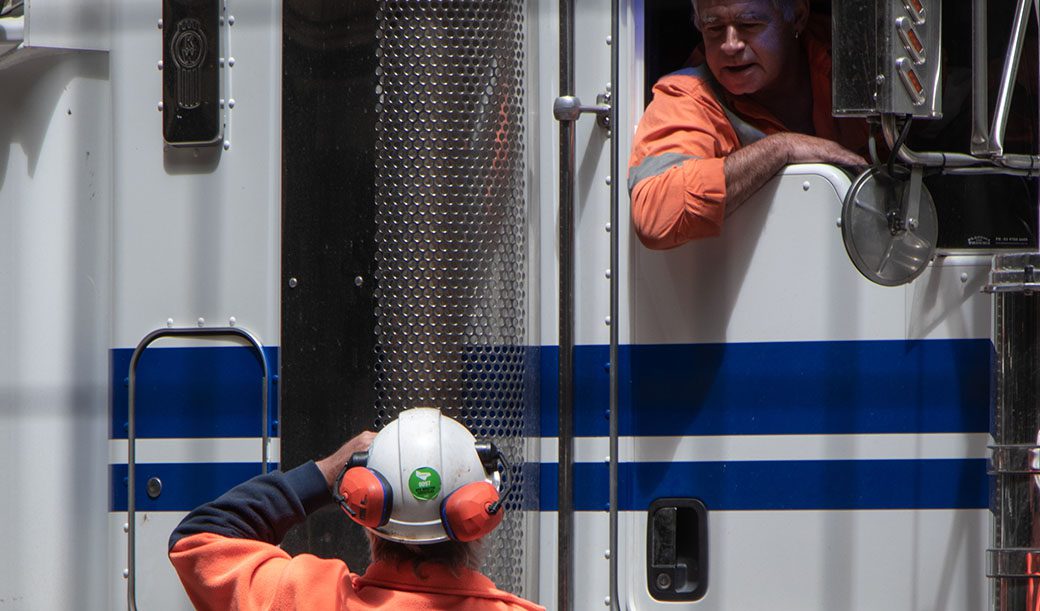New York Labor Law 201-D
This document is intended to address some of the most common situations or questions in the workplace related to adult-use cannabis and the Marijuana Regulation and Taxation Act (“MRTA”). This document does not address the medical use of cannabis. For further assistance with New York Labor Law and the MRTA, please visit New York State’s Office of Cannabis Management’s website at cannabis.ny.gov or consult with an appropriate professional.
DISCRIMINATION PROHIBITED
The MRTA amended Section 201-D of the New York Labor Law to clarify that cannabis used in accordance with New York State law is a legal consumable product. As such, employers are prohibited from discriminating against employees based on the employee’s use of cannabis outside of the workplace, outside of work hours, and without use of the employer’s equipment or property.
PERMITTED EMPLOYER ACTIONS
The MRTA amended New York Labor Law Section 201- D by adding a new subsection 4-a, which provides that employers MAY take employment action or prohibit employee conduct where:
- An employer is/was required to take such action by state or federal statute, regulation, or ordinance, or other state or federal governmental mandate
- The employer would be in violation of federal law
- The employer would lose a federal contract or federal funding
- The employee, while working, manifests specific articulable symptoms of cannabis impairment that decrease or lessen the employee’s performance of the employee’s tasks or duties
- The employee, while working, manifests specific articulable symptoms of cannabis impairment that interfere with the employer’s obligation to provide a safe and healthy workplace as required by state and federal workplace safety laws
FREQUENTLY ASKED QUESTIONS:
HUMAN RESOURCES ISSUES / ACTION AGAINST EMPLOYEES
Is illegal cannabis use protected?
Only the legal use of cannabis by adults over the age of 21 under New York State law is protected. The illegal use, sale, or transportation of cannabis is not protected by Section 201-D of the Labor Law. For more information on what is now considered legal use, please visit New York State’s Office of Cannabis Management’s website at cannabis.ny.gov or consult with an appropriate professional.
Can an employer take action against an employee for using cannabis on the job?
An employer is not prohibited from taking employment action against an employee if the employee is impaired by cannabis while working (including where the employer has not adopted an explicit policy prohibiting use), meaning the employee manifests specific articulable symptoms of impairment that:
- Decrease or lessen the performance of their duties or tasks
- Interfere with an employer’s obligation to provide a safe and healthy workplace, free from recognized hazards, as required by state and federal occupational safety and health laws
What are articulable symptoms of impairment?
There is no dispositive and complete list of symptoms of impairment. Rather, articulable symptoms of impairment are objectively observable indications that the employee’s performance of the duties of the position of their position are decreased or lessened. Employers are cautioned that such articulable symptoms may also be an indication that an employee has a disability protected by federal and state law (e.g., the NYS Human Rights Law), even if such disability or condition is unknown to the employer. Employers should consult with appropriate professionals regarding applicable local, state, and federal laws that prohibit disability discrimination.
For example, the operation of heavy machinery in an unsafe and reckless manner may be considered an articulable symptom of impairment.
What cannot be cited by an employer as articulable symptoms of impairment?
Observable signs of use that do not indicate impairment on their own cannot be cited as an articulable symptom of impairment. Only symptoms that provide objectively observable indications that the employee’s performance of the essential duties or tasks of their position are decreased or lessened may be cited. However, employers are not prohibited from disciplinary action against employees who are using cannabis during work hours or using employer property.
Can employers use drug testing as a basis for an articulable symptom of impairment?
No, a test for cannabis usage cannot serve as a basis for an employer’s conclusion that an employee was impaired by the use of cannabis, since such tests do not currently demonstrate impairment. (For more information, see section Drug Testing below).
Can I fire an employee for having a noticeable odor of cannabis?
The smell of cannabis, on its own, is not evidence of articulable symptoms of impairment under Labor Law Section 201-D.
Do I have to fire an employee for using cannabis on the job or for cannabis impairment on the job?
No, employers are permitted to take action under such circumstances but are not required to do so.
Do I have to discipline, report, or fire an employee under age 21 who uses cannabis on the job?
No, there is no legal requirement to do so in the Labor Law.
Are employers required to hire an employee back who was previously terminated for now legal cannabis use or a related expunged crime?
No, the law does not require employers to rehire former employees who were terminated due to cannabis use prior to the legalization of cannabis.
What if my employee works remotely in another state that uses different laws?
The MRTA and New York Labor Law Section 201-D only apply to employees employed within the State of New York.
Can a person use cannabis if they are on leave?
For purposes of the labor law, employers cannot prohibit the use of cannabis while employees are on leave unless the employer is permitted to do so pursuant to the provisions of New York Labor Law Section 201-D(4-a).
USE AT WORK OR DURING WORK HOURS
Can employers prohibit use of cannabis during meal or break periods?
Yes, employers may prohibit cannabis during “work hours,” which for these purposes means all time, including paid and unpaid breaks and meal periods, that the employee is suffered, permitted or expected to be engaged in work, and all time the employee is actually engaged in work. Such periods of time are still considered “work hours” if the employee leaves the worksite.
Can employers prohibit use of cannabis during periods in which an employee is on-call?
Yes, employers may prohibit cannabis during “work hours,” which includes time that the employee is on-call or “expected to be engaged in work.”
Can employers prohibit cannabis possession at work?
Yes, employers may prohibit employees from bringing cannabis onto the employer’s property, including leased and rented space, company vehicles, and areas used by employees within such property (e.g., lockers, desks, etc.).
For remote employees, can employers prohibit use in the “worksite”?
The Department of Labor does not consider an employee’s private residence being used for remote work a “worksite” within the meaning of Labor Law Section 201- D. However, an employer may take action if an employee is exhibiting articulable symptoms of impairment during work hours as described above and may institute a general policy prohibiting use during working hours.
Can employers prohibit use when the employee uses a company vehicle?
Yes, employers are permitted to prohibit use in company vehicles or on the employer’s property, even after regular business hours or work shifts.
WORKPLACE POLICIES
Can employers prohibit the use of cannabis outside of the workplace?
No, unless the employer is permitted to do so pursuant to the provisions of Labor Law Section 201-D(4-a).
Can employers require that employees promise or agree not to use cannabis as a condition of employment?
No, employers are not permitted to require employees to waive their rights under Section 201-D of the Labor Law as a condition of hire or continued employment.
Are existing policies prohibiting use permitted?
No, unless an exception applies. Employers are encouraged to update or amend such policies to reflect changes to New York State law.
APPLICABILITY
Are both public and private employees covered by the MRTA and New York Labor Law Section 201-D?
Yes, they apply to all public (state and local government) and private employers in New York State, regardless of size, industry, or occupation.
Which employees aren’t covered by the MRTA and New York Labor Law Section 201-D?
The MRTA and New York Labor Law Section 201-D do not apply to individuals who are not employees (e.g., students who are not employees, independent contractors, individuals working out of familial obligation, volunteers) or provide any consumer protections. Employees under the age of 21 are also not covered, as cannabis use by individuals under the age of 21 is prohibited by New York Law and not subject to the present protections.
Do the MRTA and New York Labor Law Section 201-D depend on immigration or citizenship status?
No, the MRTA and New York Labor Law Section 201- D apply to all employees regardless of immigration or citizenship status.
Do the MRTA and New York Labor Law Section 201-D apply to students?
Yes, the MRTA and New York Labor Law Section 201-D apply to all employees, regardless of their educational status. However, students who are not “employees” are not covered by this law.
DRUG TESTING OF EMPLOYEES
Can an employer test for cannabis?
No, unless the employer is permitted to do so pursuant to the provisions of Labor Law Section 201-D(4-a) or other applicable laws.
Can an employer drug test an employee if federal law allows for drug testing?
No, an employer cannot test an employee for cannabis merely because it is allowed or not prohibited under federal law. (See e.g., USDOL TEIN 15-90 explaining that neither the Drug Free Workplace Act of 1988 nor the rules adopted thereunder authorizes drug testing of employees.) However, an employer can drug test an employee if federal or state law requires drug testing or makes it a mandatory requirement of the position. (See e.g., mandatory drug testing for drivers of commercial motor vehicles in accordance with 49 CFR Part 382; see also e.g., NY Vehicle and Traffic Law Section 507-a which requires mandatory drug testing for for-hire vehicle motor carriers in accordance with 49 CFR 382.)
1 The federal government, as an employer, is not covered by this law.
Reposted from NY Department of Labor




